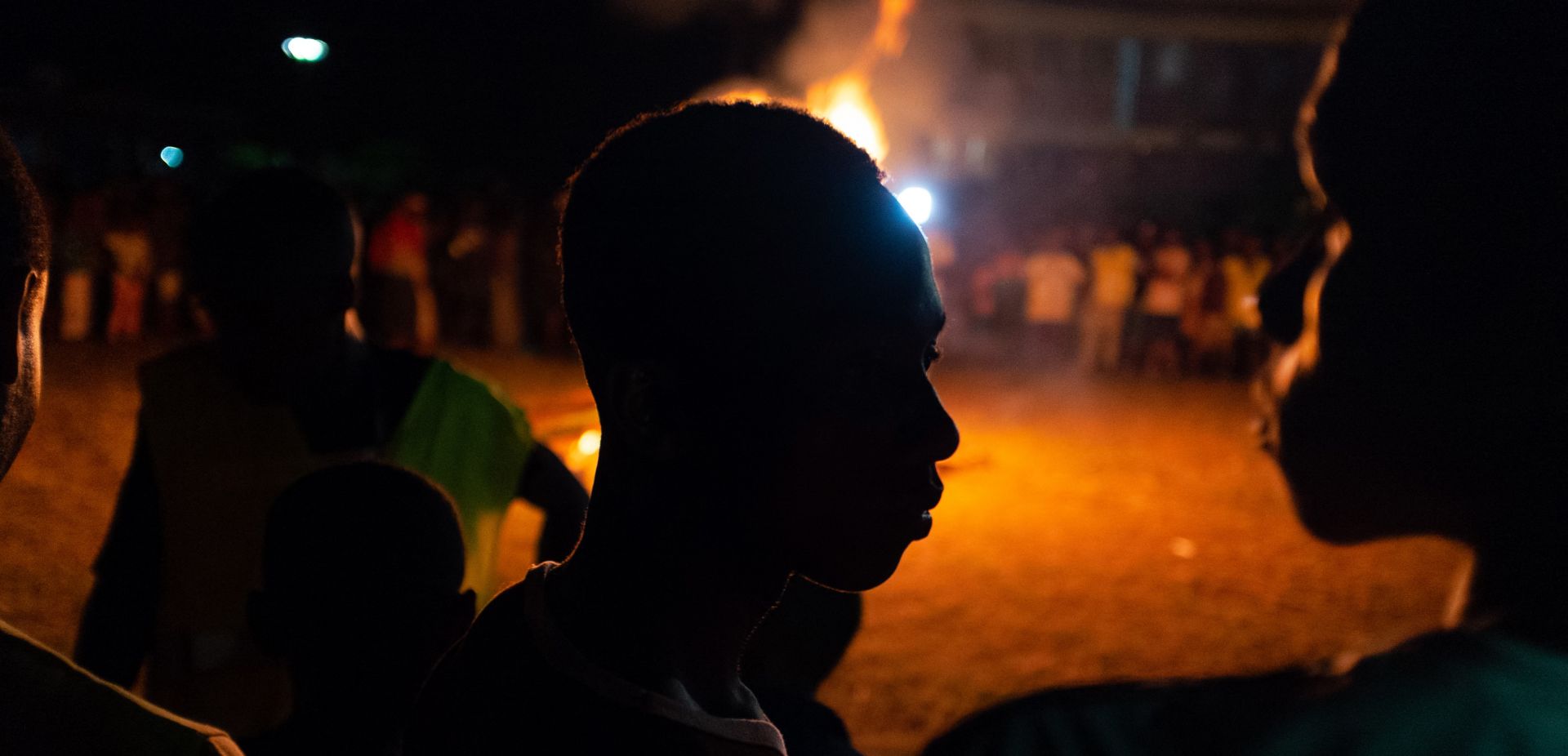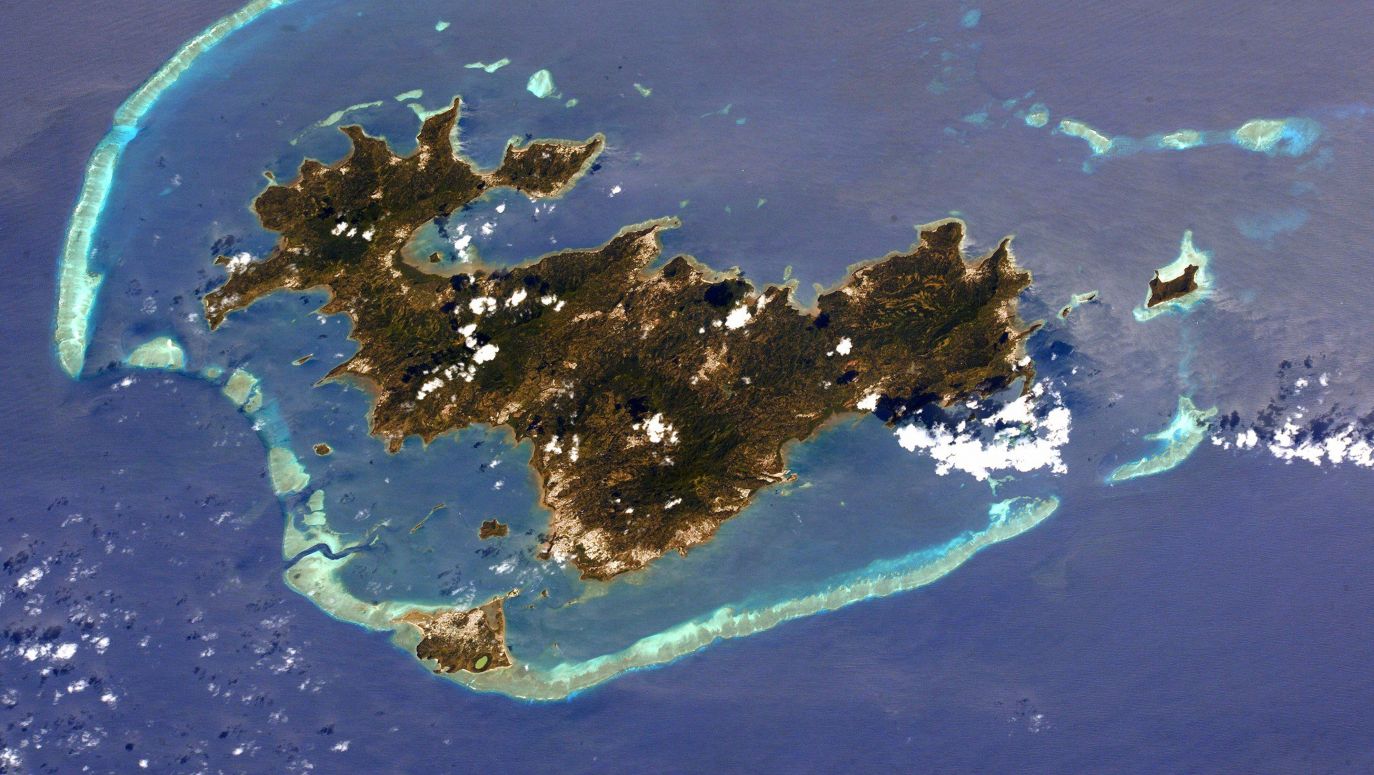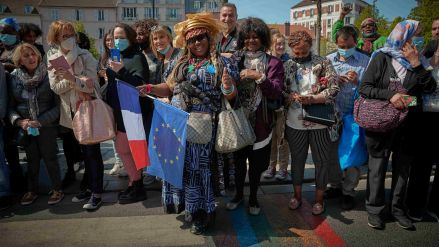Is it a conspiracy theory? Not at all. This is exactly how the local population sees it. For people of Mayotte, used to many inconveniences and patiently waiting for Metropolitan France’s investments, this proved to be the last drop. Immigration is like a tsunami, it floods and destroys everything. If anyone thinks this is propaganda exaggeration, they should take a look at the hard data and facts.
The unprecedented migration crisis facing Mayotte is most telling in numbers. INSEE, i.e. the French Central Statistical Office, states that the island has a population of 387,000. inhabitants, half of whom are foreigners. Of those -- 95% are illegal immigrants from the Comoros. It's as if Poland had 15-20 million foreigners!
In reality the situation is even worse since the official figures represent an underestimate. Calculating imports of rice or the level of water consumption, one concludes that the population has exceeded half a million. During the lockdown, the prefect of the island forgot to bite his tongue when he claimed to have provided 450 million masks "one for each adult". With half the population under age 20, a more accurate count could yet turn out to be even more spectacular -- revealing at least 150,000 more illegal immigrants lacking any administrative status than is commonly believed.
Given that the island had 3,000 inhabitants at the time France took it over (half of them slaves), and that the total had reached a mere 40,000 by the time independence was rejected in 1974, the scale of the demographic explosion is impressive. More amazing is the fact that it is the work not only of the indigenous population, but also of illegal immigration.
The mechanism itself is easy to understand: it's like a magnet and iron filings -- a strong magnet and lots of iron filings. The overseas department of France, even poorer than Metropolitan France itself, has a much higher standard of living than its neighbors. Even in crises, Mayotte residents still have better access to education, health, infrastructure and employment opportunities. This attracts migrants seeking a better life.
Mayotte's doom is its geographical location. One of the archipelago's four islands, it exists in the shadow of the other three that form the state currently known as the Union of the Comoros.
 SIGN UP TO OUR PAGE
SIGN UP TO OUR PAGE 
One of the world's poorest countries, for half a century the Comoros has been shaken by coups, putsches and secessions, which have occurred on one island or another, whether manipulated by Western mercenaries or South African regimes, or militarily invaded by the Organization of African Unity. The state known as the Comoros has changed governments as often as it has changed its official name and flag. Its GDP is grotesque, with a quarter of its national income accounted for by remittances from the diaspora.
It is even possible that the combined number of Comorians residing in Mayotte and the French island of Réunion and Marseille exceeds the actual population of the Comoros, which numbers one million. Throw in systemic corruption at the highest levels, along with mass trading in passports, flag of convenience, etc. and you have almost a prototype of one of the countries so rudely referred to by Donald Trump as "shitholes ".
Given the short distance between Mayotte and the Comoros (some 70 kilometers), crossing borders is relatively easy here. All you need is a boat and a bit of luck in the rarely patrolled territorial waters. Illegal immigrant smuggling is a major economic activity. Sixty to eighty Comorians arrive daily in the French paradise island on vessels commonly called kwassa kwassa ["an unstable boat” in the local language].
What distinguishes illegal immigration from the Comoros to Mayotte from the flows to such European counterparts as the Canary Islands, Lampedusa or across the Aegean Sea is the greater number of women, many of in a state of advanced pregnancy. Comorian women come to Mayotte in order to give birth. They do so attracted not only by the safer sanitary conditions that reduce the risk of deaths in childbirth, but also because a child born in Mayotte acquires a passport to a better life.
French nationality law is historically based on the principles of jus soli [Latin for "right of soil"]. French citizenship is acquired not only by inheritance, but by the mere fact of being born on French territory.
After a series of legal restrictions in the 1990s, nowadays, seemingly, a child on reaching the age of 13 can choose his/her citizenship. Up until then, the child lives in a legal vacuum, along with its parents. They, as illegal immigrants have no claim to the right of residence yet, as parents of a potential French citizen, they cannot be subject to deportation.
Whether viewed as an absurdity or a legal loophole, this is enough to paralyze the migration system and prevent deportations.
This applies not only to newborns, but also to slightly older children who are declared as their sons/daughters by French or Comorian citizens with legal residence in Mayotte. Paternity in France is simply declared at the office, without any tests. Some "fathers" have dozens of such "children" from many women.
Moreover, a large proportion of these children are abandoned after birth, once their mothers or fathers have obtained the coveted status of being "non-deportable". It is estimated that there are six to eight thousand such children in Mayotte. Most live in slums, growing up without any reference to ethical norms. Once they enter their teens they become cannon fodder for barbarian gangs terrorizing the island.
The fertility rate in Mayotte is 4.16. Among Comorian women it is over 5.0. The high birth rate and adult immigration are significant factors in shaping the demographic modification of the population.
Paris is trying to protect itself from this flood of "legal illegal" immigrants emanating from the Comoros, Madagascar, continental Africa, and more recently even Yemen, by introducing a residence card of a territorial nature, which gives newcomers the right to stay only in Mayotte, and not in Metropolitan France. However, it is little more than a patch on the prosthesis. The effect of the mass invasion is the aforementioned paralysis of infrastructures.
A large influx of immigrants places a greater burden on the healthcare system that has to deal with more patients. The lack of sufficient resources and medical personnel limits access to needed medical services for the local community. The only hospital in Mayotte is in fact one huge maternity ward that tends to monopolize medical practice on the island. For example, foreign women can give birth in comfortable conditions, but when it comes to obtaining the services of an ophthalmologist native Mahorans have to fly elsewhere.
It's the same with housing: migrant population growth requires additional social housing, the lack of which leads to overcrowding and alternative solutions that result in illegal encampments and slums, lawless zones, outbreaks of disease and hotbeds of banditry.
On a small island, locals lose their livelihoods as their fields turn into slums and local governments run out of space for social housing, driving property prices up. A protected tropical forest cannot simply be cleared away. Of course, immigrants do not care about such bans. Plantations flourish on the plots created illegally in the jungle and in the fields forcibly taken from local farmers. Such desperate measures fuel the gray economy and provide a lucrative source of income for the local Mafia.
Mass immigration is similarly catastrophic for education. Schools have to cope with an increased number of school-age immigrants, including native-borns, which in turn adds to the need for additional teachers, classrooms and teaching materials. With 80 % of the students coming from the Comoros, local government officials calculate that mass immigration and the galloping demographics of newcomers mean that a new school would have to be opened every week.
The more pupils in a class, the more negative the impact on the quality of teaching. Schools are forced to operate in shifts and that disrupts the lives of families. Moreover, students coming from the Comoros, often sent by desperate families for whom this offers their only way to provide their children with a minimum of education, are totally illiterate. Often, at primary schools, along Mahoran ten-year-olds, it is not uncommon to come across Comorians with facial hair, the so-called "bearded children".
Faced with such a crisis, many islanders prefer to send their children to schools in Réunion or Metropolitan France. There, at least, they are not exposed to daily acts of aggression such as the attacks by machete-wielding gangs who lay sieges to high schools. The everyday sight of a policeman standing in front of a school's entrance comes as no surprise to anyone.
It's also worth mentioning the paralysis of the judicial system that makes it so difficult for Mahorans to assert their rights. The courts are drowning in a flood of asylum and residency cases brought by left-wing lawyers on behalf of illegal immigrants. In the prisons, 80% of those jailed are Comorians.
Many local politicians point out that illegal immigration and the resulting chaos cannot simply be attributed to the outcome of spontaneous processes but claim they are the result of deliberate political action. Whose? It is not difficult to guess: there is only one country in the region that has an interest, motive and means -- the aforementioned Comoros.


 SIGN UP TO OUR PAGE
SIGN UP TO OUR PAGE 





